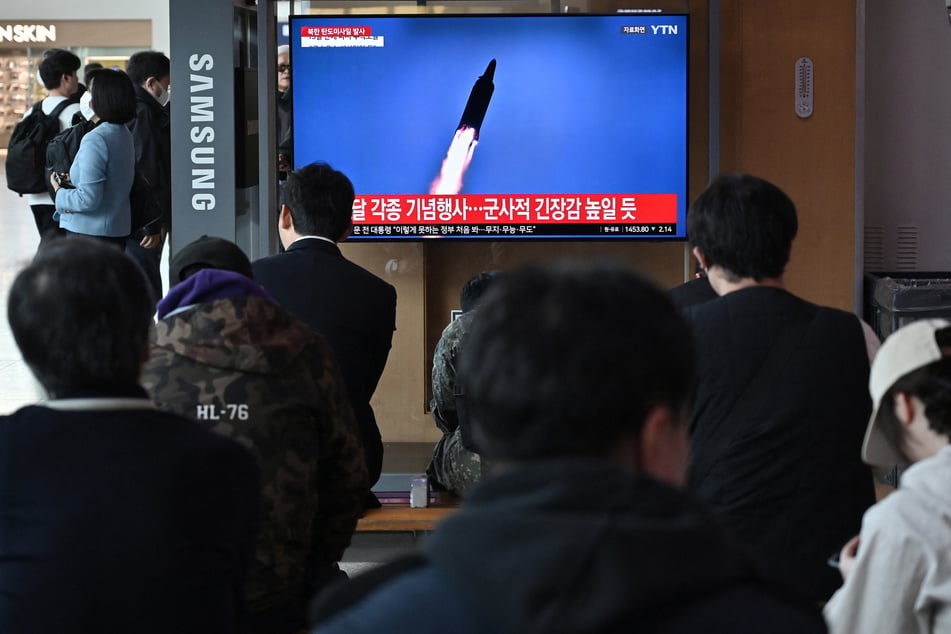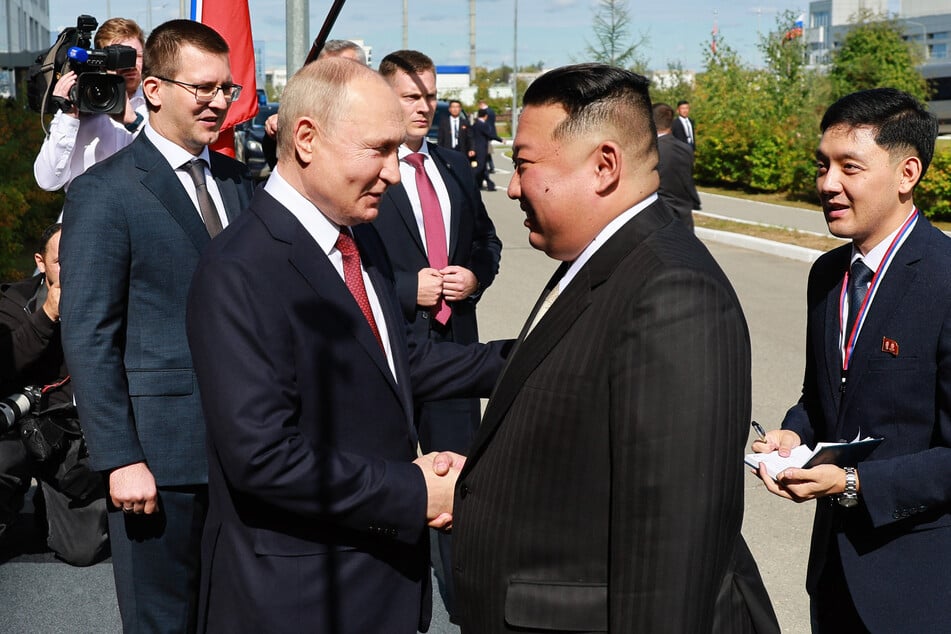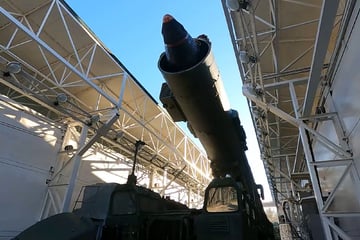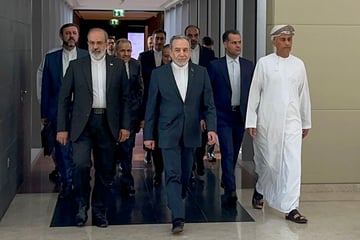North Korea fires missiles after UN weapons monitoring program ends
Pyongyang, North Korea - North Korea fired a medium-range ballistic missile on Tuesday, Seoul's military said, the latest in a spate of banned weapons tests by Kim Jong Un's regime this year.

Tuesday's launch was the third ballistic missile test of 2024, after a solid-fuel one overseen by Kim in March and another tipped with a maneuverable hypersonic warhead in January.
It also comes less than two weeks after Kim supervised an engine test for a "new-type intermediate-range hypersonic missile," according to North Korean state media, which has also said he oversaw "super large" rocket launcher drills and tank exercises this year.
Seoul's military "detected around 06:53 what is presumed to be a medium-range ballistic missile fired from Pyongyang area into the East Sea," the Joint Chiefs of Staff said, referring to the body of water also known as the Sea of Japan.
The missile flew about 373 miles before splashing down, the JCS said, adding it had "stepped up monitoring and are closely sharing relevant information with the US and Japan."
"We strongly condemn the North's blatant provocation that threatens peace and stability on the Korean peninsula," it added.
Tokyo confirmed the missile launch, with its coastguard urging vessels to be vigilant and report any fallen objects without approaching them.
Japanese public broadcaster NHK, citing unnamed government sources, reported that the missile appeared "to have fallen in waters outside Japan's exclusive economic zone."
Japanese Prime Minister Fumio Kishida told reporters that the North had "repeatedly launched ballistic missiles" this year, adding that it was a threat to regional security and "absolutely unacceptable."
Details emerge about North Korea's latest weapons test

Tuesday's launch likely involved a hypersonic warhead, a Seoul military official told the Yonhap news agency.
"North Korea appears to have put a hypersonic warhead on top of the delivery system used in the engine test last month," the official said.
He added that while the missile flew for "less than 10 minutes," its speed was similar to that of a hypersonic model.
Hypersonic missiles travel at speeds of at least Mach 5 – five times the speed of sound – and can maneuver mid-flight, making them harder to track and intercept.
Depending on their design, they can carry both conventional and nuclear warheads.
The launch comes just days after a Russian veto at the United Nations ended UN expert monitoring of North Korean sanctions violations amid a probe into alleged arms transfers between Moscow and Pyongyang.
North Korea has yet to comment on the development.
It also comes just over a week before South Korea votes in a general election, in which the party of hawkish President Yoon Suk Yeol, who has taken a tough line with Pyongyang, is seeking to win back control of the parliament.
Cover photo: Jung Yeon-je / AFP

